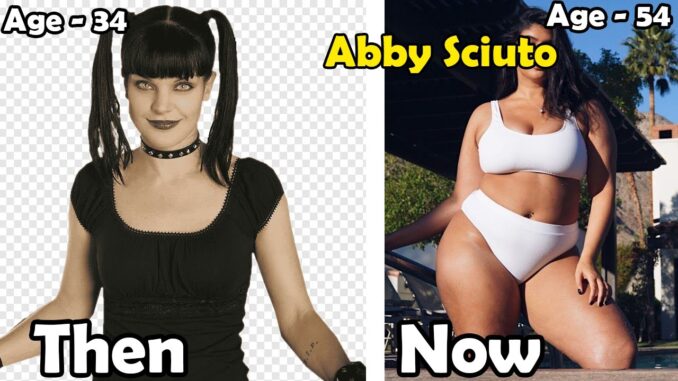
Twenty Years of NCIS: The Unfurling Tapestry of Time on Screen
Television, at its best, is a shared journey. We invite characters into our living rooms, watch them navigate crises, fall in love, lose, and triumph. And sometimes, if a show is truly special, we watch them age. For two decades, NCIS has been more than just a procedural; it has been a constant, a comforting presence, a familiar address in the ever-shifting landscape of prime-time television. And as the show has evolved, so too have its beloved stars, their faces becoming living timelines, etched with the passage of twenty years of shared stories, both on-screen and off.
To witness the full arc of NCIS is to observe a masterclass in graceful aging, in the way time sculpts the human form, adding layers of wisdom, weariness, and warmth. The most striking transformation, perhaps, belongs to Mark Harmon's Leroy Jethro Gibbs. When we first met him, Gibbs was a man of quiet intensity, a stoic force with a jawline carved from granite and eyes that missed nothing. Twenty years later, though the granite remains, it has softened, crisscrossed with the fine lines of a thousand difficult decisions, a hundred silent losses, and the subtle shift of a man who has carried immense burdens. His hair, once dark, became progressively dusted with silver, then outright white, a testament to the snows of many winters in the NCIS bullpen. Yet, the piercing blue gaze remained, perhaps a fraction more world-weary, but no less commanding, a reflection of the character’s unwavering moral compass. Harmon's aging mirrors Gibbs’s journey: from an almost mythic, indestructible figure to a more humanized, even vulnerable, elder statesman, whose strength now resides as much in his quiet dignity as in his formidable past.
Then there’s Sean Murray’s Timothy McGee, whose on-screen journey from fresh-faced, often-flustered junior agent to confident, respected Senior Field Agent has been a living timeline of growth. In the early seasons, McGee was the quintessential "probie," a gangly, earnest tech wizard whose youthfulness was palpable. His face was smoother, his expression often one of wide-eyed eagerness or bewildered anxiety. Fast forward twenty years, and the boyishness has given way to the settled calm of a man who has built a family, survived countless threats, and found his footing not just as an agent, but as a husband and father. The lines around his eyes are now those of a man who has seen much, endured more, and taken on the mantle of leadership with a quiet assuredness. His aging isn't just about wrinkles; it's about the physical manifestation of character development, a visible record of experience etched onto his features.
The show's eccentrics, David McCallum's Dr. Donald "Ducky" Mallard and Pauley Perrette's Abby Sciuto, provided a fascinating study in contrasting aging processes. Ducky, already a seasoned character when the show began, aged with the gentle erosion of time, his once-ruddy complexion softening, his gait becoming a touch more deliberate, and his hair, always immaculately coiffed, turning a distinguished pure white. Yet, the twinkle in his eyes, the benevolent wisdom of his smile, and the boundless enthusiasm for his morbid anecdotes remained gloriously intact. He aged as a beloved grandfather figure, his very presence a comforting constant. Abby, on the other hand, was almost ageless in her gothic chic, a testament to Perrette's unique look and the character’s almost cartoonish consistency. While subtle changes in the lines around her eyes and mouth might hint at the passage of time, her signature dark hair, dramatic makeup, and energetic demeanor largely defied it, making her eventual departure feel like the tearing of a timeless fabric.
Even those who departed and returned left indelible marks of time. Michael Weatherly's Anthony DiNozzo Jr., the show's resident jester, began as a picture of youthful exuberance, his handsome face often contorted in a sarcastic grin or an exaggerated eye-roll. When he returned for Ducky's tribute, years after his initial exit, there was a visible maturity, a subtle filling out, and perhaps a touch more gravitas behind the roguish charm. The playfulness was still there, but it was seasoned by the responsibilities of fatherhood and the quietude of a life lived away from the NCIS spotlight. Similarly, Cote de Pablo’s Ziva David, whose intensity and youthful agility defined her early years, reappeared with a new, deeper wisdom in her eyes, a testament to her character’s grueling journey and the actress's own growth. The sharp edges of her youth had been refined, not dulled, by time and experience.
In essence, watching NCIS for two decades is to watch a living portrait gallery. Each actor's face tells a silent story of the character they portray and the real-life years they've dedicated to their craft. It's a reminder that television, at its most profound, is a mirror, reflecting not just the fictional worlds it creates but also the universal truth of time’s relentless, beautiful march. The silver hairs, the deeper lines, the subtle changes in expression—they are not just signs of aging, but testaments to resilience, growth, and the enduring power of stories told over a remarkable two decades. NCIS has not just entertained us; it has aged alongside us, a comforting, familiar presence whose evolving faces tell us that time passes, but loyalty, duty, and found family remain.
